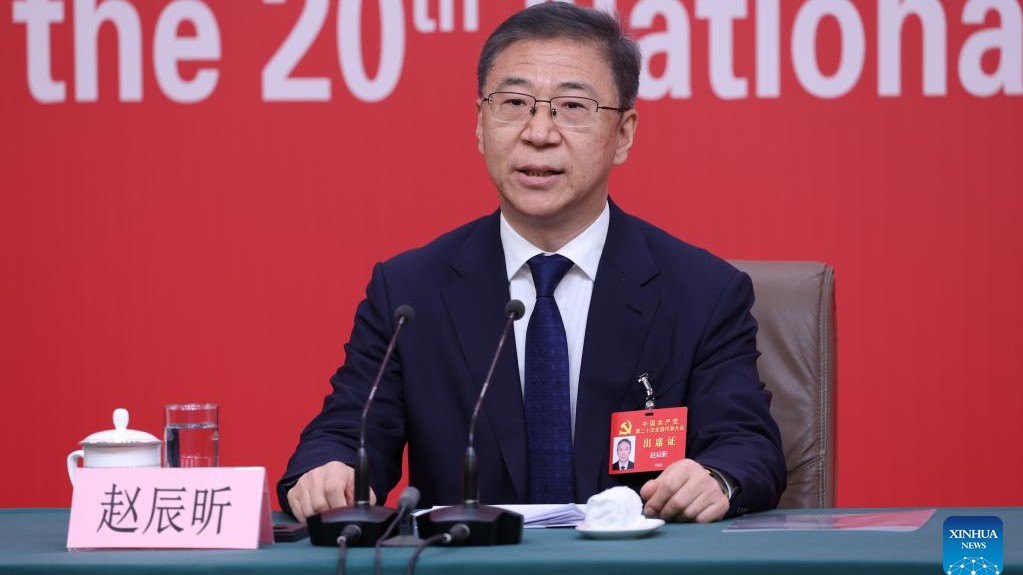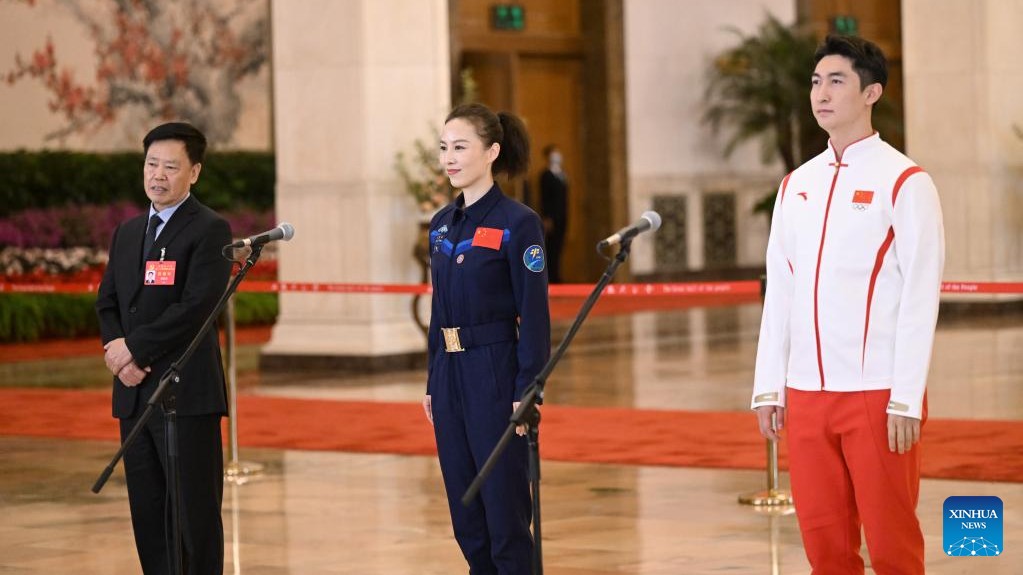On March 16, 2020, the Information Office of the People's Government of Xinjiang Uygur Autonomous Region held the 7th press conference on Xinjiang related issues. The press conference invited Spokesperson of the Information Office of the People's Government of XUAR Elijan Anayit, Director of Human Resources and Social Security Department of XUAR Rehmanjan Dawut, Administrative Commissioner of Kashgar Prefecture Parhat Rozi, Administrative Commissioner of Hotan Prefecture Aziz Musha, to give a briefing and answer questions from the press.
Host of press conference: Deputy Head of the Publicity Department of the CPC Xinjiang Committee Xu Guixiang
Xu Guixiang: Dear friends from the press, good afternoon. Welcome to the 7th press conference on Xinjiang related issues.
The invitees of today's press conference are Spokesperson of the Information Office of the People’s Government of XUAR Elijan Anayit, Director of Human Resources and Social Security Department of XUAR Rehmanjan Dawut, Administrative Commissioner of Kashgar Prefecture Parhat Rozi, Administrative Commissioner of Hotan Prefecture Aziz Musha. They will answer questions from you.
Our friends from the press, please raise your hands to ask questions. Before asking questions, please introduce the name of the news press you are in.
Reporter from China Daily
Q:Recently the Australian Strategic Policy Institute issued a report named Uygurs for Sale, estimating that there were 80,000 Ugyurs transferred to factories across the country between 2017 and 2019 by Xinjiang to further control them. What is your comment on this report?
Xu Guixiang: This question goes to Elijan Anayit.
Elijan Anayit, Spokesperson of the Information Office of the People’s Government of XUAR:
A: The so-called Uygurs for Sale report issued by ASPI is a smear about Xinjiang full of suppositions and fabricated stories, an obvious ideological prejudice.
As you may know that the four prefectures in Southern Xinjiang are recognized by the country as severely underdeveloped areas with frail bio-environment, frequent natural disasters, huge impoverished population and vast coverage of absolute poverty. It is the responsibility the governments at all levels of Xinjiang cannot relinquish but do their utmost to help these poverty-stricken people to get employed, get rid of the poverty and lead happy lives as soon as possible. However, the job opportunities are limited in Southern Xinjiang owing to the backwardness of their industrialization and urbanization. To address the problem, local authorities have taken active measures to help the surplus labor from poor households in Southern Xinjiang to get employed based on their employment intentions, such as creating more jobs opportunities at local markets, seeking employment in other prefectures and cities in Xinjiang, or organizing transferred employment out of Xinjiang through “pairing-up”support mechanism between Xinjiang and other provinces or municipalities with their rights to employment protected to the most extent to increase their incomes and shake off the poverty.
Since 2018, Xinjiang has realized transferred employment for 151,000 surplus labor from poor families of Southern Xinjiang. Among them, there are 14,700 people find jobs in factories and companies in inland China provinces either introduced by their fellow villagers, or guided by relatives, or allocated by human resources markets to appropriate positions, but none of them are trainees from vocational and education training centers. Most of them work in fields of garments and shoes making, electronic or electrical products manufacturing, food processing, catering industry, automobile assembling packing, etc., with an average annual income of 45,000 yuan, which is much more higher than they could get through agricultural production in Southern Xinjiang, and no doubt, all of them and their families have been lifted out of poverty.
As we understood, the ASPI has long been receiving funds from the US government and arm dealers, and it deliberately smears, vilifies and demonizes China for the investors' benefits. It works with other anti-China forces in the United States to slander and discredit the Xinjiang's efforts in counter terrorism and deradicalization with false theories full of bias and in disregards of facts. ASPI and its biased position is notorious among many people in Australia with criticism on its academic credibility. Geoff Raby, former Australian ambassador to China took it as the architect of China Threat Theory in Australia; former Bob Carr claimed that ASPI was “selling partial and pro-American world outlook” and John Maynard, former CEO of Australia Airlines thought it “lack of honesty and shamed Australia”.
This time, instigated by its master, ASPI scraped up a story with pieces of no factual basis and spread a repetition of old rhetoric which we have refuted several times. It distorted the normal production conducts of Southern Xinjiang labor to get employed in inland China and make a better living as “forced labor”, aiming to cooperate with the United States in its conspiracy to disentitle Xinjiang laborers, suppress Chinese enterprises and affect the foreign companies’ confidence of investing in China.
Hearing about the report, some employers of inland China at which Xinjiang labor working felt deeply shocked, claiming that writers of the report did not made thorough field investigation and telling a false story. According to news report, the Dong Guan Yidong Electronic Technology Co. Ltd (YDET) has made a statement on the employment of Xinjiang Uygur workers at its Hubei province factory. As rightly stressed in the statement that all these workers leave Xinjiang and get employed at their wishes in Yidong Company of Hubei Province, a sub corporation of YDET. Neither Xinjiang local authorities nor the employer force anyone of them doing anything they refuse to do. They encounter no prejudice in work an daily life, on the contrary, all their rights to religious belief, ethnic cultural and using of mother languages are respected by their employers and workmates in Hubei. And they devote to the present jobs and wish to carry on.
We would like to point it out solemnly here, People’s Republic of China is a common home for people of all ethnic groups, Uygurs included, and they are masters of their own . Chinese citizen is entitled to work at any place around the country voluntarily and their rights are protected by law. The ASPI’s intentional interpretation of the cross-provincial employments of people’s own free wills as “forced labor” is but a most absurd tale. So can we take it for granted that the people in Australia and America are forced to labor and find jobs in different state and region within the country?
Reporter from China News Service
Q:It is understood that the US CECC report on Global Supply Chain, Forced Labor and Xinjiang Uygur Autonomous Region” said that there is mass forced labor in Xinjiang, and some US senators also submitted a proposal of Prevent Act on Forced Uygur Labor.” What is your comment on that?
Xu Guixiang: This question goes to Rehmanjan Dawut.
Rehmanjan Dawut, Director of Human Resources and Social Security Department of XUAR :
A: The United States has always fabricated facts about Xinjiang affairs with gratuitous accusation and profound prejudice. There is a group of American people who always hold hostility towards China with making-up stories, confuse right and wrong. Shortly after the report issued by Australian Strategic Policy Institute, the US announced its so-called report and Act proposal, obviously, these documents are the prologue of a new round of smear and slander about Xinjiang. Clearly they have made the plans evilly in collusion to make up new topics to shift away the public attention on their domestic economic, social problems and epidemic crisis.
The so-called accusation of Xinjiang ethnic minorities are under “mass forced labor” is total against the facts. Employment is a fundamental rights of Chinese citizen, ethnic minorities, like the rest of the labor in the country, are entitled to the rights and hereby protected by law. They have their freedom to choose their career at any place with any employer as they wish with no restrictions on their personal freedom. Ethnic minorities from Xinjiang enjoy full respect to their religious belief, ethnic cultures and using of spoken and written mother languages. Their employers are obliged to provide sound working and living conditions to ensure that they work with content, live in comfort and their families back home are free from worrisome. Where does this forced labor come from when all the workers and their families are satisfied with the arrangement of transferred employment?
We are doing the righteous thing to help the ethnic minorities in solving their employment difficulties with measures withstood the testimony of times. Since last year, over 1,000 representatives have visited Xinjiang in more than 70 groups, including officials from various countries, regions and international organizations, and people from the press, religious groups and foreign diplomatic delegations. They acclaimed that Xinjiang’s experience in counter-terrorism and deradicalization, and social and economic progress worth of praise. However, there are always some people who are hostile to China just turned their deaf ears to this. We welcome more people coming to understand the situation in Xinjiang with objective and fair attitude. But we will not welcome those who hold ill-intentions and shall never accept groundless accusation and vicious smear.
Reporter from Xinhua News Agency
Q: It is known to us that transferred employment to inland China has been taken as one of the targeted poverty alleviation measures in Xinjiang. Why do you transfer the surplus labor in Xinjiang to inland China? What achievements have been made?
Xu Guixiang: This question goes to Elijan Anayit.
Elijan Anayit, Spokesperson of the Information Office of the People’s Government of XUAR:
A: Employment is the most effective way to solve the problem of poverty here, as long as there is one person having a stable job, the whole family could be expected to be lifted out of poverty. In recent years, to address the difficulties of much surplus labor in villages of Southern Xinjiang and limited employment capacity of local markets, efforts have been made to prioritize the employment promotion in local economic development and gradually expand the size of employment to help more people of all ethnic groups to increase their incomes. Among others, transferred employment is the important measure in local poverty alleviation endeavor to win the battle against the poverty.
As to why transfer the surplus labor to inland China cities, the reasons are simple enough. Firstly, local people have the active demands to go out of Xinjiang. Many poor people in Southern Xinjiang want to travel around others places, to widen their visions and learn skills. Stable employment would enable them to earn more money and live a better life. Secondly, there are more labor-intensive factories in developed areas of China which are suitable for the surplus labor from Xinjiang. What we have done is to make connections between the demand of the impoverished people in Southern Xinjiang and the job opportunities in other parts of China, so as to help out the needy people to find satisfied jobs to earn more money.
The transferred employment is well received and given positive feedback by people of various ethnic groups. With the guidance and assistance of the local governments, many poor village farmers come to cities and become industrial workers. Not only did they get the occupational skills, but also earned salaries and their families have benefited as well. For example, Raykhangul Yimir, used to live in poverty in Amashi Village, Yumai Township of Aktaw County. During the four years of hard working in Cixi City of Zhejiang Province, she sent back home over 100,000 yuan out of her earnings. At present, her family are able to build new houses and their lives have improved greatly. In another case, Paxiagul Kerem, a low-income girl from Bortukoy Township, Wuqia County of Kizilesu Kirkiz Autonomous Prefecture, took the initiative to work in an enterprise in Dongguan, Guangdong Province. Now she could earn 45,000 yuan a year. Following her suit, more than 500 people from her hometown went to work in Guangdong, and many of them shook off poverty. In honoring her role of demonstration, Paxiagul was awarded a national Poverty Alleviation Endeavor Medal in 2018 and the national May 1st Labor Medal in 2019.
Reporter from China Global Television Network (CGTN)
Q: According to information, many of the transferred surplus labor were ethnic minorities from Southern Xinjiang. Are they willing to leave their hometowns to work in other parts of China?
Xu Guixiang: This question goes to Parhat Rozi.
Parhat Rozi, Administrative Commissioner of Kashgar Prefecture:
A: The basic principle and precondition for surplus labor transferred employment in Xinjiang is respecting the wills of the people. No one is forced to work in other provinces. Just as I mentioned earlier, many ethnic minorities in Southern Xinjiang have the wishes of working and making money outside Xinjiang. To meet their demands and provide opportunities for them to make money, local human resources markets have carried out active measures to help them finding jobs outside Xinjiang. Every time when employment information is announced, many people ask about more details. Such as the local climate, job specifications, accommodation and salary,etc. Being fully aware of possible problems they may encounter after leaving home, they can submit applications as they wish based on their actual family situation and personal skills.
In recent years, all the ethnic minority labor from Southern Xinjiang who worked in companies across China have been lifted out of poverty and led a better-off life. After the contract expired, they requested voluntarily to stay and continue to work there. Some even bring their relatives and friends to work with them after returning from home-visit holidays. Seeing that their relatives and friends are earning fortune outside Xinjiang, more and more ethnic minorities from Southern Xinjiang show strong interests in signing up at local human resources markets for opportunities to work in inland China cities.
Reporter from Global Times
Q: There are workers coming from Xinjiang to inland cities for jobs, what are their working and living conditions? Can their rights and interests of ethnic customs, language and culture, and religious belief be guaranteed?
Xu Guixiang: This question goes to Aziz Musha.
Aziz Musha, Administrative Commissioner of Hotan Prefecture:
A: As far as we know, the workers from Xinjiang to inland cities lead a good life there. They have been taken care by their employers and their difficulties and concerns are solved promptly. To help them adapting to their work as soon as possible, systematic training will be offered in different posts for them to grasp professional know-how based on their actual labor skills; to provide them better living conditions, their dormitories are equipped with facilities like TVs, air conditioners and washing machines etc, and Uygur chefs are specially hired to cook delicious Halal food for them. After work, they are free to go out for traveling, shopping and watching movies with friends, etc., so they could fit in with local lives soon enough.
The ASPI report said that the ethnic minority workers from Xinjiang to inland cities are prohibited from participating religious activities. This is totally ignorance and prejudice. In China, citizens’ freedom of religious belief is protected by law despite the geographical changes. In fact, there are mosques in many inland cities.The Islam followers among the migrant workers, like their peer back in Xinjiang, can carry out their normal religious practices as they wish free from intervention of any organization or individual.
Their ethnic and cultural customs are fully respected by their employers. When it comes to the traditional festivals like Ramadan, Corban Eid Festival etc, Xinjiang workers dressed in their traditional costumes will get together to celebrate the occasion joined by their local workmates. They sing and dance together with activities such as Maxrap in a harmonious atmosphere. In daily lives, they learn from each other the languages and folk ways. Some local employees have learned Uygur daily expressions. They get along with each other like families.
Reporter from China Media Group
Q: Have these migrant workers from Xinjiang to inland cities signed contracts with their employers? What about their salaries? How to protect their rights and interests of labor like vocation, insurance, etc?
Xu Guixiang: This question goes to Rehmanjan Dawut.
Rehmanjan Dawut, Director of Human Resources and Social Security Department of XUAR:
A: China is a country ruled by law. According to the Labor Law and Law on Labor Contracts of the People’s Republic of China and relevant administrative regulations, all employees, regardless of their ethnicity, race, gender and religious belief, should sign labor contracts with their employers on the basis of equality, voluntariness and consensus with due remuneration.
Like all the other laborers, workers from Xinjiang to inland cities enjoy the equal rights to employment, contracts signing, pay, rest, labor safety, hygiene and social security benefits in accordance with law. They have signed contracts with their employers, in which working contents, hours, salaries and compensations, insurances, rest and vocation have all been clearly defined with the labor relationship established under the protection of law. According to the Labor Law, the employers pay for their endowment insurance, medical insurance, unemployment insurance, injury insurance and maternal insurance. And they have been offered home leaves for a certain period time every year, and the travel expenses will be reimbursed. Besides, free health check-up are provided to make sure they are in fit conditions. In the meantime, Xinjiang Federation of Labor Union has established bidirectional rights safeguarding mechanism with their counterparts in provinces hosting migrant workers from Xinjiang to protect the rights and interests of them in accordance with law. Free Service Manual for Employees’ Rights Safeguarding have been handed out to encourage them to join in the local labor unions with guidance to helps and concerns to solve the problems they may encounter.
As for their salaries, we have carried out some surveys on this. The average income for migrant workers from Xinjiang is over 3500 yuan monthly, the highest reaches 6000 or 7000 yuan, which is much more than working in the farming fields back home. Here is an example of Abibulah Mamut, a worker from a poverty-stricken family of Aykule Town in Aksu City. In 2018, he voluntarily signed up for a job working in an electric apparatus enterprise in Hangzhou and gradually got proficient in his work. It took him only one year to get rid of poverty with a total income of 55,000 yuan. There are actually many people like Abibulah Mamut, who shake off poverty and become better off in happiness through transferred employment program.
Reporter from Xinjiang Daily
Q: The ASPI reported that “Xinjiang transferred trainees from “re-education camps” to factories across China and forced them to work, which is regarded as an extension of “re-education camp” policy.” What’s your comment on this?
Xu Guixiang: This question goes to Elijan Anayit.
Elijan Anayit, Spokesperson of the Information Office of the People’s Government of XUAR:
A: First, I want to emphasize that there is neither “re-education camps” or “re-education camp policy”in Xinjiang. ASPI has distorted facts with its own alarmist talks. What ASPI claimed has nothing to do with vocational education and training centers in Xinjiang. The fact is, there is no difference in nature between the vocational education and training centers established in Xinjiang in accordance with the law and the “community correction” measures adopted by the US, the DDP program in the UK and the deradicalization centers set up in France, they are all useful initiatives for preventive counter-terrorism and deradicalization approaches. The vocational education and training centers in Xinjiang are no “re-education camps.”
It has been formally announced by Mr. Shohrat Zakir, Governor of Xinjiang Uygur Autonomous Region at a news release on December 9, 2019, that all trainees had left the centers after completion of their courses of learning standard spoken and written Chinese, knowledge of law and regulation and occupational skills. Those trainees are free people enjoying equal working rights as Chinese citizens. It’s their personal choices that what to do and where they want to work. ASPI accused that the forced labor is an extension of Xinjiang’s “re-education camp policy” by transferring trainees from “re-education camps” to factories across China. What a ridiculous view! How could we “transfer” trainees when they have already graduated last year? And how could we extend “re-education camp policy” when there is no such “re-education camp” at all? These people by all means smear vocational education and training centers in Xinjiang with distorted facts. I’m wondering what is their vicious purpose?
Reporter from Xinjiang Radio and Television Station
Q: Recently, some foreign officials alleged that “it’s genocide to send Uygur people to work in inland cities during the epidemic.” What’s your comment on this?
Xu Guixiang: This question goes to Rehmanjan Dawut.
Rehmanjan Dawut, Director of Human Resources and Social Security Department of XUAR:
A:Since the outbreak of COVID-19, together with rest of China, we have strictly implemented the the decisions and deployments of CPC Central Committee, prioritized the epidemic prevention and control for the current phase and followed the general requirement of having full confidence and relying on concerted effort, scientific containment and targeted measures. We have taken resolute actions in epidemic prevention and control across the region and made significant progress for the moment, which are obvious for the whole world to see.
With the help and concerns of local governments and employers in inland cities, all ethnic minority workers from Xinjiang are safe and sound with no confirmed or suspected case reported. The smear“it’s genocide to send Uygur people to work in inland China cities during the epidemic”is totally nonsense.
Reporter from People's Daily
Q: Recently, some western media cited viewpoints from Australian Strategic Policy Institute’s report, stirring up that there is “massive forced labor” in Xinjiang. They alleged that there are people who were forced to work and provide products for 83 world-renowned enterprises. How do you respond to that?
Xu Guixiang: This question goes to Elijan Anayit.
Elijan Anayit, Spokesperson of the Information Office of the People’s Government of XUAR:
A: Objective reports and rational viewpoints are the basic professional ethics for the press. However, some western media are used to reporting Xinjiang in an unfair and biased way. Imposing double standards on Xinjiang, they are selectively blind to the facts and make selective reports to the truth of Xinjiang. Some even smear and blacken us.
For instance, when it comes to terrorism, if it happened in western countries, these media would release a bulk of accusations and condolences; but when it happened in Xinjiang, most of the media would either turn blind eyes or allege it as “a protest and demonstration”. Preposterously, last December, the CITV released two documentaries named Fighting Terrorism in Xinjiang and The Black Hand ETIM and Terrorism respectively, which triggered great concerns abroad. But those mainstream western media who are so fond of reporting “Xinjiang related news” turned to dumbness and kept silence entirely.
When it comes to deradicalization, the western media ignore the objective reports and remarks shared by over 1000 people who have visited Xinjiang since last year, including UN officials, foreign diplomatic envoys, press and religious organizations, but bought the rumors spread by those terrorists and separatists. Simply borrowing viewpoints infused with denigration of Xinjiang made by some so-called scholars and think tanks in the west, these media smeared the vocational and education training centers in Xinjiang as “internment camps” regardless of the efforts Xinjiang has taken in deradicalization and human rights protection.
When it comes to the fight against COVID-19, the western media alleged measures taken by China as “at great cost to people’s livelihoods and personal liberties”, while the same measures in Italy were “risking its economy in an effort to contain Europe’s worst coronavirus outbreak”. In disregard of the obvious achievements of Xinjiang’s COVID-19 prevention and control work, and the fact that all trainees have graduated from the centers last year, they still link coronavirus with Xinjiang’s vocational and education training centers, spread false news about “Xinjiang education and training centers are faced with the risk of virus outbreak” in collusion with the East Turkistan forces.
This time, they repeat the same tactics by citing the so-called report made up by ASPI, distorting the normal labor practice that the impoverished Southern Xinjiang people work in inland China to for more incomes and poverty relief as “forced labor”. In essence, they intend to mislead the international community so as to sabotage the long-term sound cooperation between international enterprises and China, and eventually to contain China’s development.
Finally, we’d like to urge these irresponsible media that do not be fooled by ignorance and fatuity, don’t lose your sanity to arrogance and prejudice and stop spreading rumors everywhere. Don’t incur more skepticism and lost your credibility. For those irresponsible journalists, we’d like to urge you to examine your conscience. Working for such irresponsible media and always making up articles like these, do you really write about the truth as expected? It seems like you are the victims of the forced labor indeed.
Xu Guixiang: Today's press conference concludes now. Thanks all the invitees and reporters.


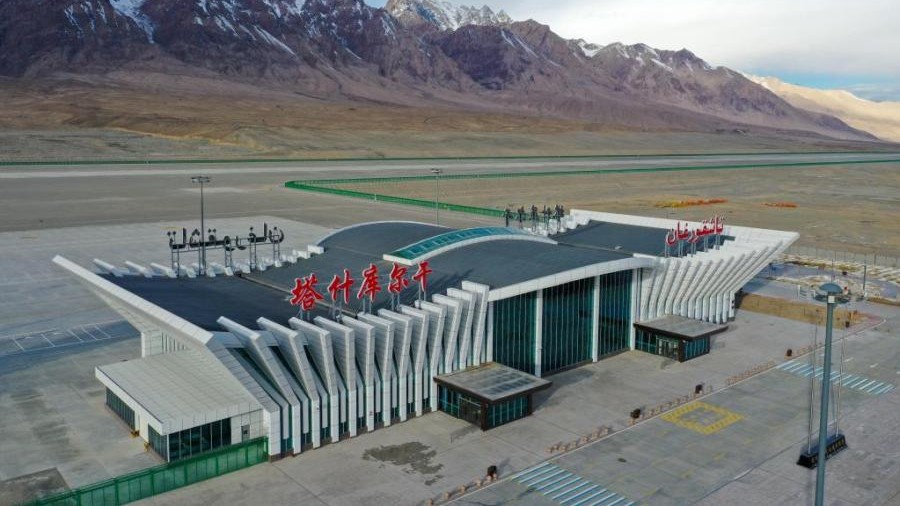

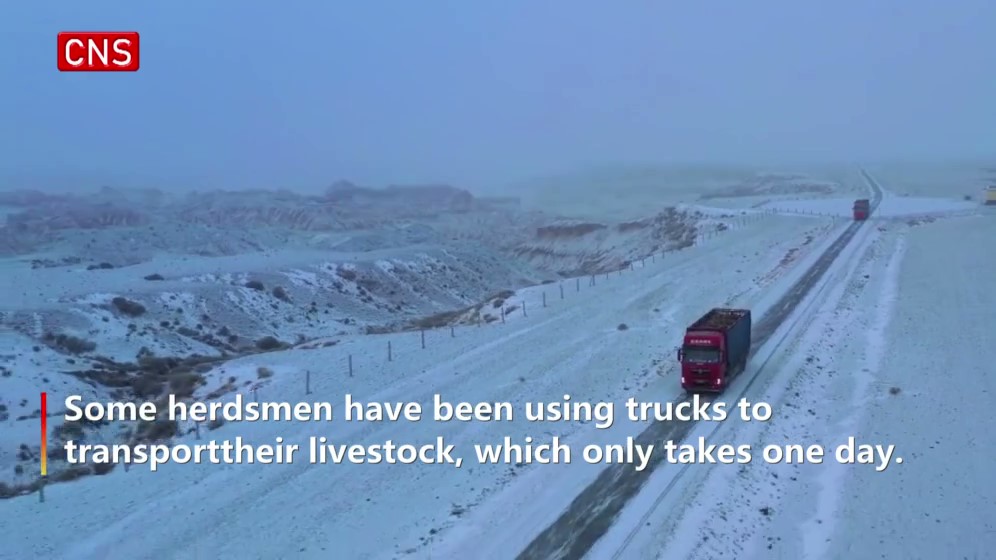
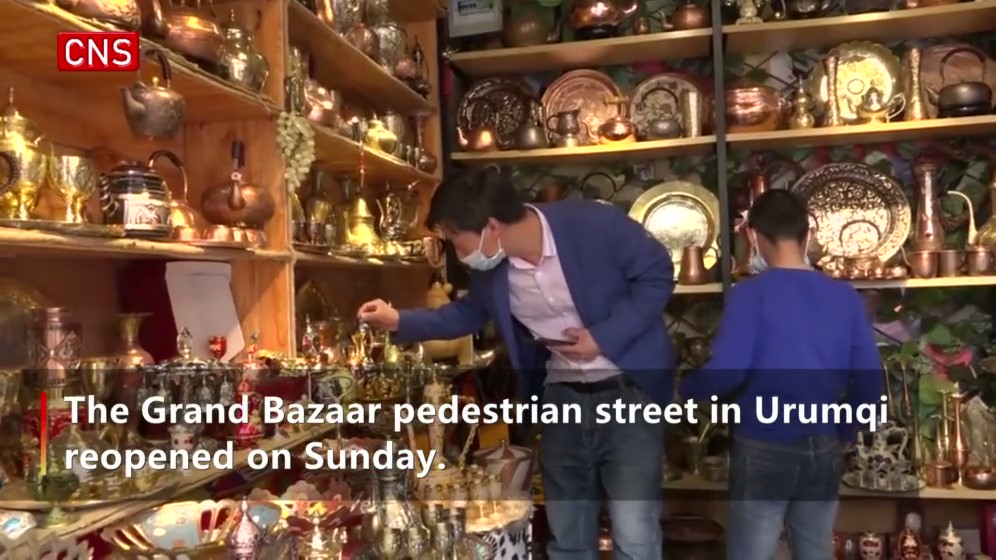

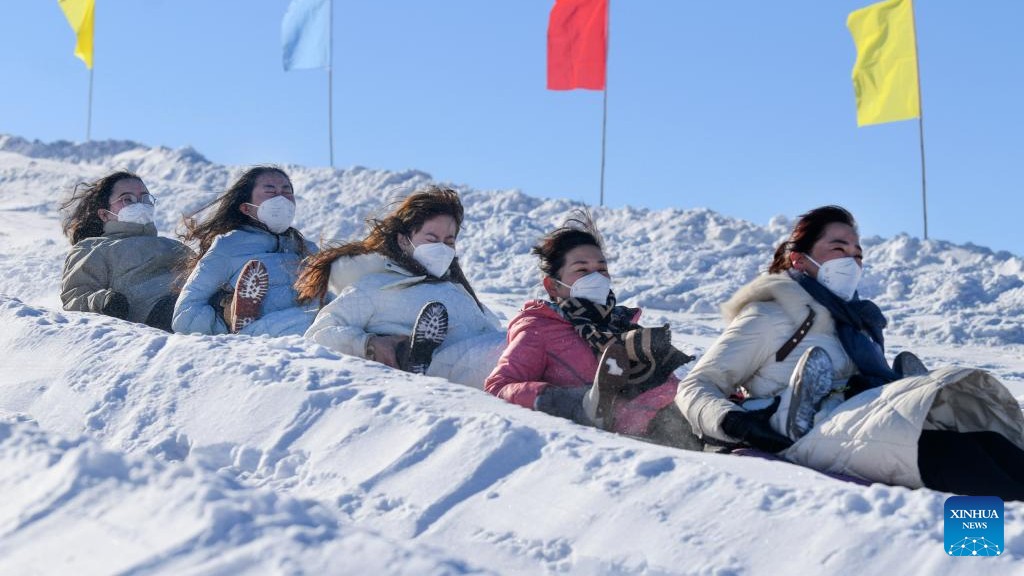


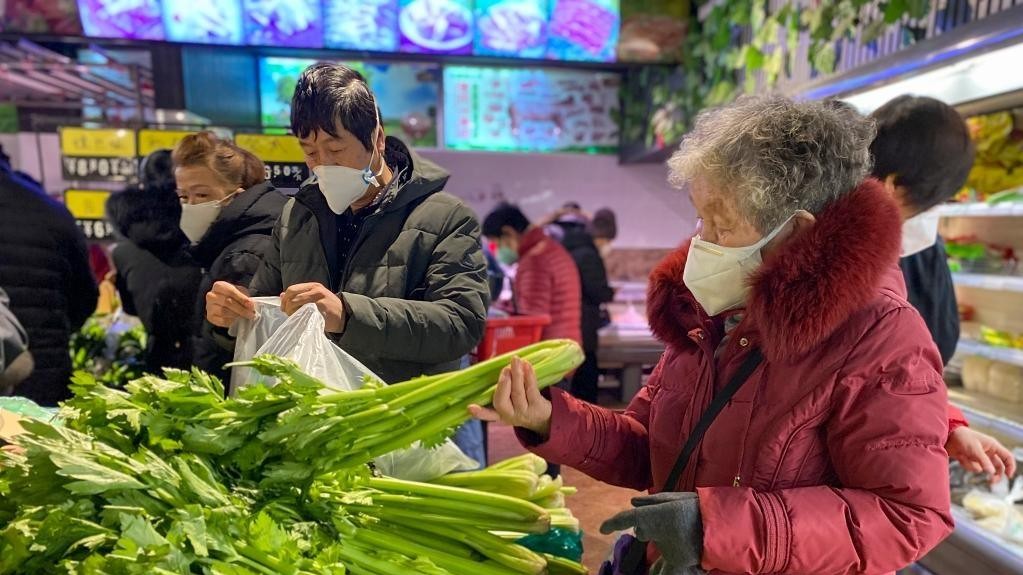

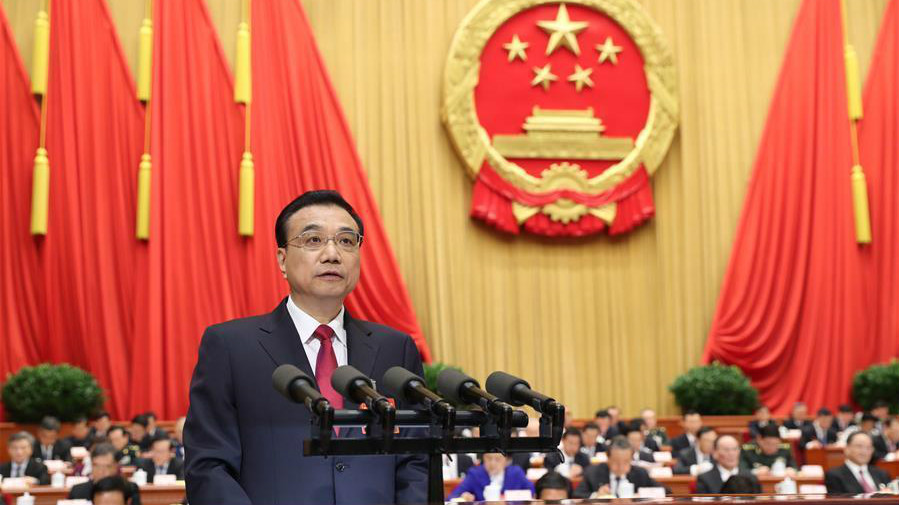

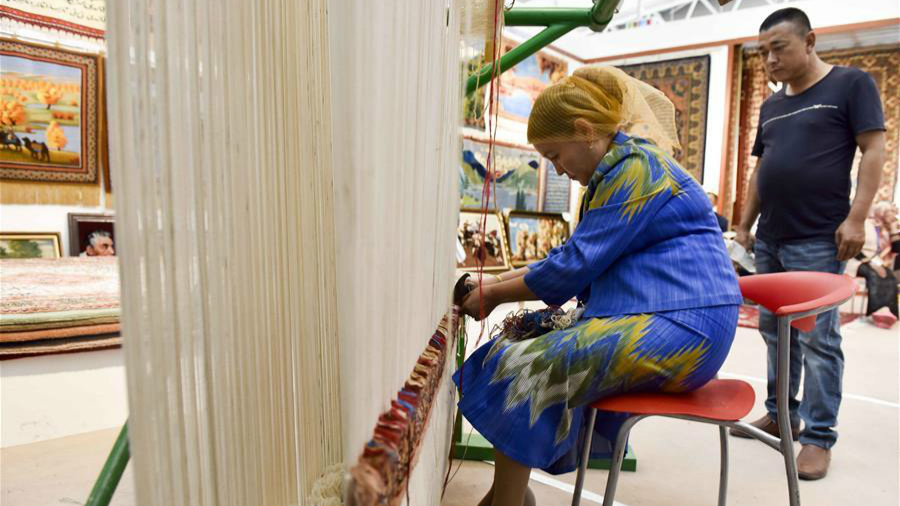
.jpg)

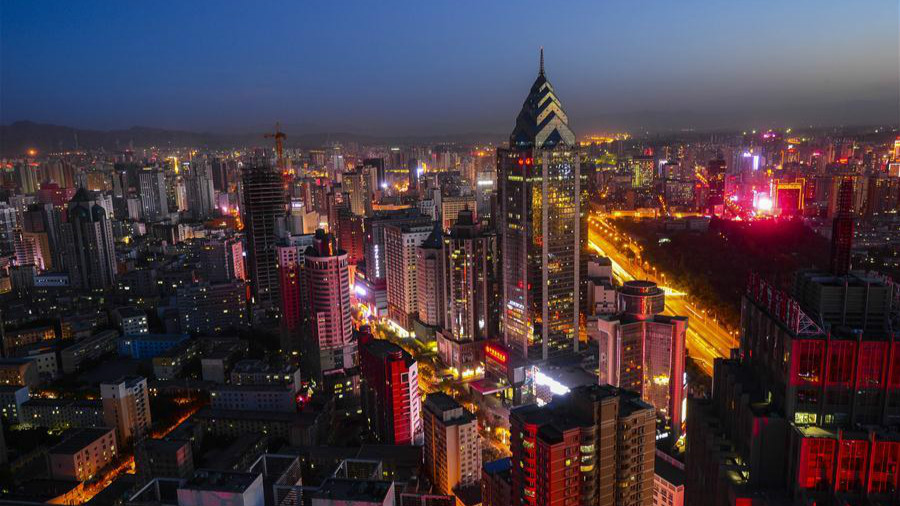
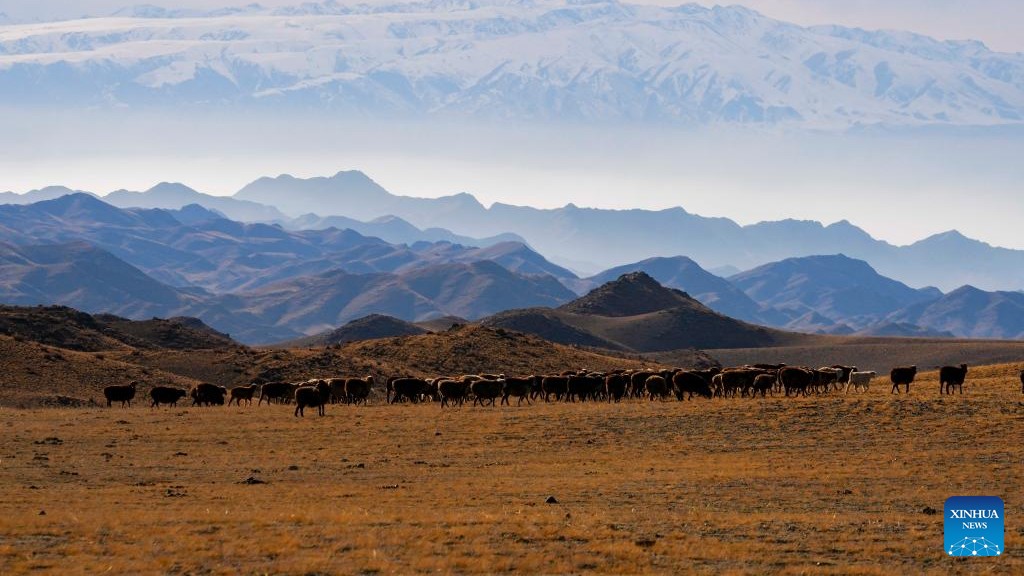

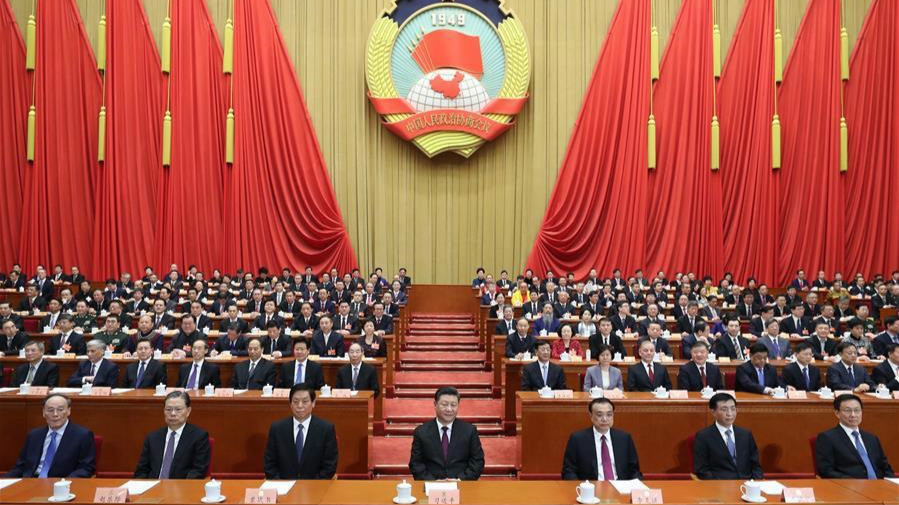
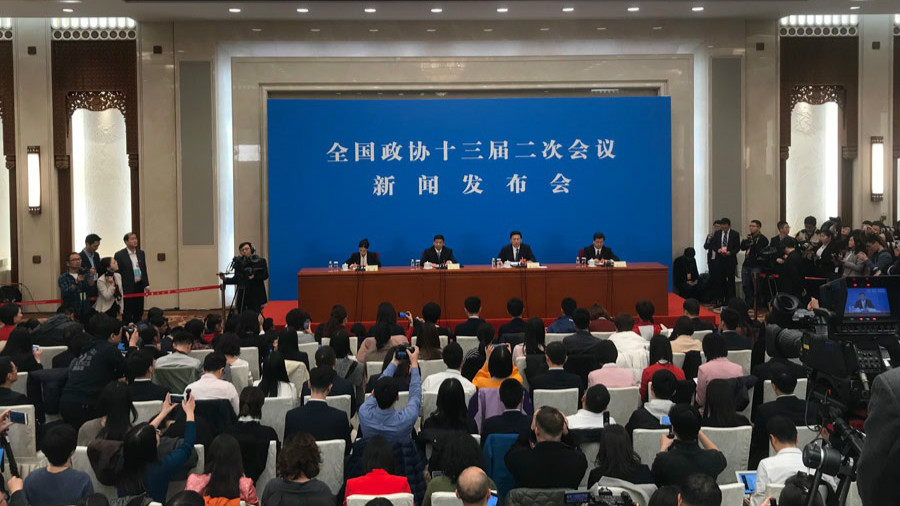
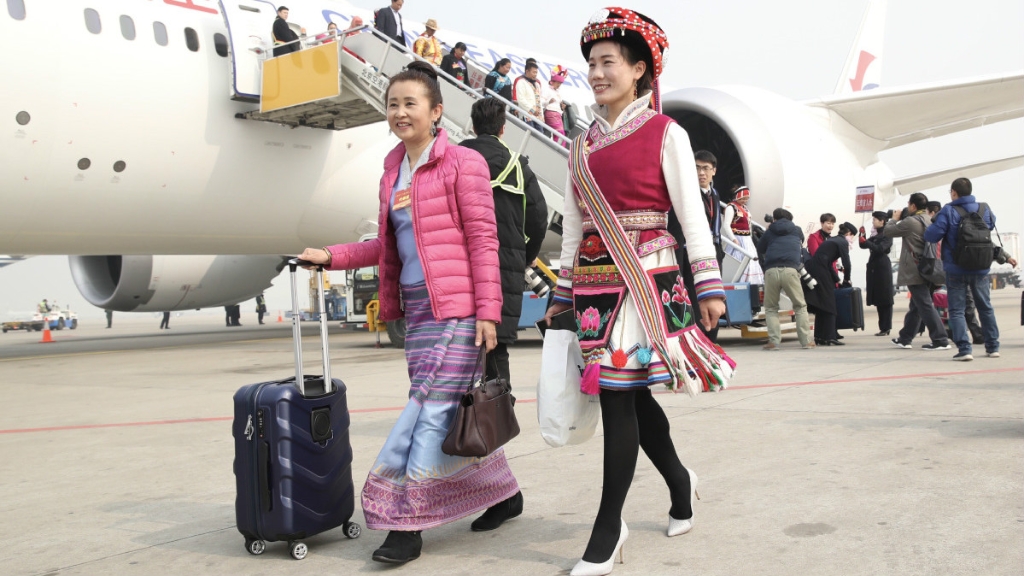

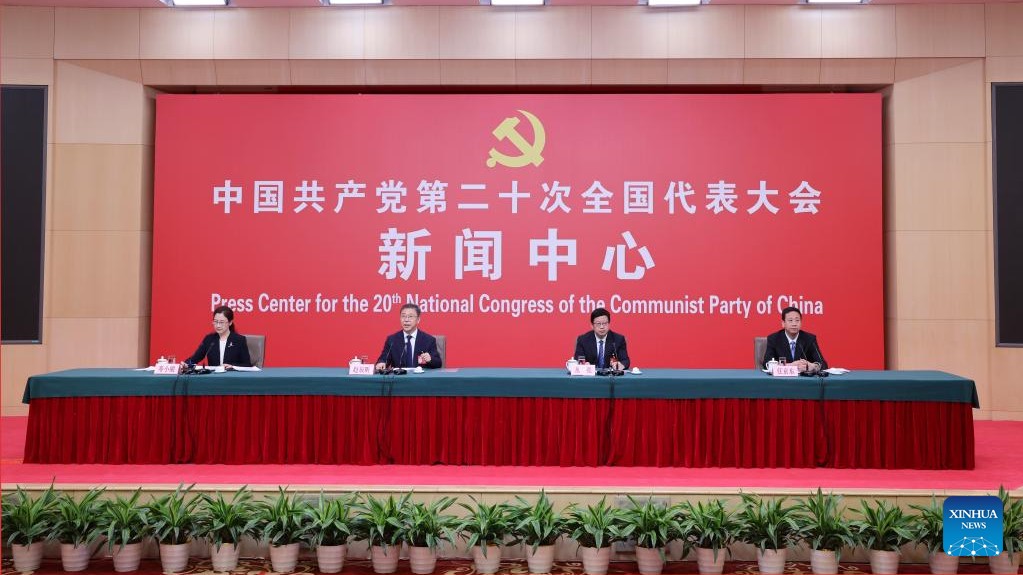
.jpg)
